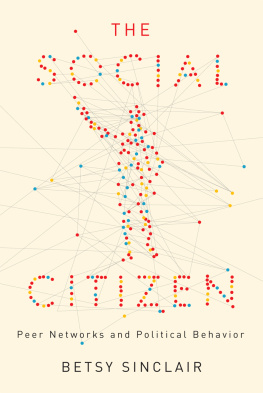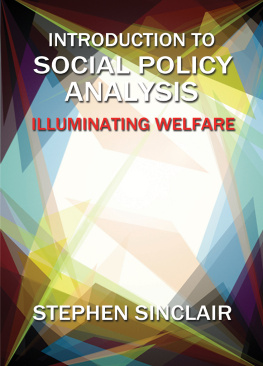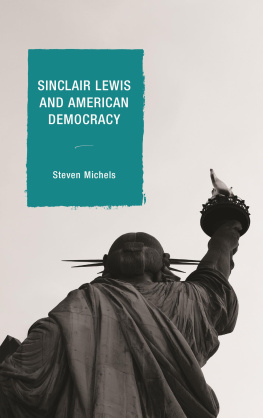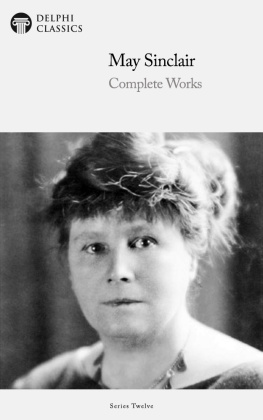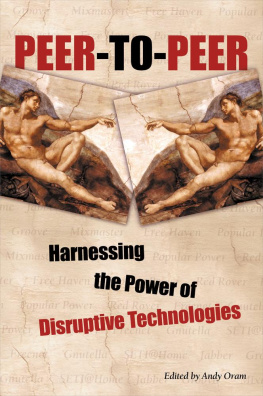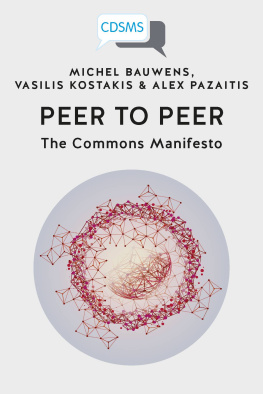Betsy Sinclair is assistant professor in the Department of Political Science at the University of Chicago.
The University of Chicago Press, Chicago 60637
The University of Chicago Press, Ltd., London
2012 by The University of Chicago
All rights reserved. Published 2012.
Printed in the United States of America
21 20 19 18 17 16 15 14 13 12 12345
ISBN-13: 978-0-226-92281-2 (cloth)
ISBN-13: 978-0-226-92282-9 (paper)
ISBN-13: 978-0-226-92283-6 (e-book)
ISBN-10: 0-226-92281-2 (cloth)
ISBN-10: 0-226-92282-0 (paper)
ISBN-10: 0-26-92283-9 (e-book)
Library of Congress Cataloging-in-Publication Data
Sinclair, Betsy.
The social citizen : peer networks and political behavior / Betsy Sinclair.
pages. cm. (Chicago studies in American politics)
ISBN-13: 978-0-226-92281-2 (cloth: alk. paper)
ISBN-10: 0-226-92281-2 (cloth: alk. paper)
ISBN-13: 978-0-226-92282-9 (pbk. : alk. paper)
ISBN-10: 0-226-92282-0 (pbk. : alk. paper) [etc.]
1. Political participationUnited States. 2. Social networksUnited States. 3. VotingSocial aspectsUnited States. 4. Social pressure. I. Title. II. Series: Chicago studies in American politics.
JK1764.S542 2012
306.20973dc23 2012019396

This paper meets the requirements of ANSI/NISO Z39.48-1992 (Permanence of Paper).
The Social Citizen: Peer Networks and Political Behavior
Betsy Sinclair
The University of Chicago Press
Chicago and London
CHICAGO STUDIES IN AMERICAN POLITICS
A series edited by Benjamin I. Page, Susan Herbst, Lawrence R. Jacobs, and James Druckman
Also in the series:
The Timeline of Presidential Elections: How Campaigns Do (and Do Not) Matter by Robert S. Erikson and Christopher Wlezien
Electing Judges: The Surprising Effects of Campaigning on Judicial Legitimacy by James L. Gibson
Follow the Leader? How Voters Respond to Politicians Policies and Performance by Gabriel S. Lenz
The Submerged State: How Invisible Government Policies Undermine American Democracy by Suzanne Mettler
Disciplining the Poor: Neoliberal Paternalism and the Persistent Power of Race by Joe Soss, Richard C. Fording, and Sanford F. Schram
Why Parties? A Second Look by John H. Aldrich
News That Matters: Television and American Opinion, Updated Edition by Shanto Iyengar and Donald R. Kinder
Selling Fear: Counterterrorism, the Media, and Public Opinion by Brigitte L. Nacos, Yaeli Bloch-Elkon, and Robert Y. Shapiro
Obamas Race: The 2008 Election and the Dream of a Post-racial America by Michael Tesler and David O. Sears
Filibustering: A Political History of Obstruction in the House and Senate by Gregory Koger
In Time of War: Understanding American Public Opinion from World War II to Iraq by Adam J. Berinisky
Us Against Them: Ethnocentric Foundations of American Opinion by Donald R. Kinder and Cindy D. Kam
The Partisan Sort: How Liberals Became Democrats and Conservatives Became Republicans by Matthew Levendusky
Democracy at Risk: How Terrorist Threats Affect the Public by Jennifer L. Merolla and Elizabeth J. Zechmeister
Agendas and Instability in American Politics, 2nd edition, by Frank R. Baumgartner and Bryan D. Jones
The Private Abuse of the Public Interest by Lawrence D. Brown and Lawrence R. Jacobs
The Party Decides: Presidential Nominations before and after Reform by Marty Cohen, David Karol, Hans Noel, and John Zaller
Same Sex, Different Politics: Success and Failure in the Struggles over Gay Rights by Gary Mucciaroni
To James & Brian
Contents
Acknowledgments
This book is the product of many conversations with advisors, colleagues, and friends. Mike Alvarez, Jonathan Katz, and Jonathan Nagler provided early mentorship on this project. Eric Oliver read numerous drafts, provided many comments, and had countless lunch meetings on how to write a book manuscript. Michael Dawson, John Brehm, John Padgett, John Balz, Jon Rogowski, Tom Wood, Jaira Harrington, Alex Bass, and Amir Fairdosi read various chapters. Jan Leighley helped me to focus on the central questions and innovations of the book. Lauren Blake provided research assistance for the chapter on campaign donations, and Margaret McConnell, Donald Green, and Melissa Michelson coauthored the field experiment research that informs the chapter on turnout. Jamie Druckman and James Fowler me helped ask the big picture questions. Will Howell encouraged me to keep writing. Ethan Bueno de Mesquita and the Harris School sponsored a conference on the book, which proved to be an invaluable academic experience, particularly by including Don Kinder, Bob Huckfeldt, Skip Lupia, and Jamie Druckman in the conversation. Kathryn Ciffolillo provided copyediting. Brian Rogers and the rest of the Sinclair family provided help, humor, grace, guidance and copyediting. James Rogers helped keep me to a deadline. I am thankful to them all.
Preface
People are inherently social. From fashion choices to moral standards, people continually adjust their behavior to fit in with those who surround them. Consequently, social relationships define our fundamental human experiences, from our sense of self to our preferences, and even affect our health. Reliance on a social network, the complex collection of relationships that arise from each persons geography, work, and leisure activities, is a common human characteristic. Most individuals have political networks embedded within their social networks. A political network consists of the social network members with whom an individual discusses politics, elections, or government. Political networks are part of the social component of human life.
But while people may be social, citizens are not, at least according to some of the most recognized models of political decision making. Indeed, most standard accountsincluding those from a rational choice or psychological perspectivefocus strictly on an individually based calculus, where each person independently, in isolation, chooses each political action. Citizens are assumed to make decisions free from the influence of their social network. When political scientists do recognize social influences, they usually consign them to the realm of mere information. In this view, our social networks shape our decisions to participate or our vote choices only insofar as they provide us with information that we may not already have; citizens, it would seem, are largely immune to social influence.
A growing body of empirical work challenges this portrayal by showing that the people with whom individuals interact affect a range of decisions including voting, protesting, and donating money (Christakis and Fowler 2009; Huckfeldt, Johnson, and Sprague 2004; Mutz 2006). Yet even this recent work leaves a number of fundamental questions unanswered: Do social networks really influence individuals, or do individuals choose networks with members who engage in similar behavior? If social networks matter, how do they work? Do they provide information, or is their function more basic and akin to peer pressure, causing mere mimicry or persuading people to conform to a set of social norms? Are there conditions or particular political activities that shape the impact of social influences? What are the implications of a social citizen for a well-functioning democracy?
 This paper meets the requirements of ANSI/NISO Z39.48-1992 (Permanence of Paper).
This paper meets the requirements of ANSI/NISO Z39.48-1992 (Permanence of Paper).
